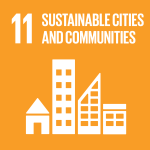
Photo: Jim Marshall/UNDP
Tbilisi, 24 October 2023 — At its 37th Board Meeting today, the Green Climate Fund (GCF) approved $14.4 million in funding for a new project geared towards advancing climate-resilient flood risk management in Bosnia and Herzegovina. In partnership with the United Nations Development Programme (UNDP), the initiative will support flood forecasting and early warning systems, as well as bolster risk management at the national and local levels.
The Minister of Foreign Trade and Economic Relations of Bosnia and Herzegovina, Staša Košarac welcomed the GCF’s investment in the $72 million project, co-financed by the relevant institutions in Bosnia and Herzegovina, which will be implemented in cooperation with UNDP. “The project is a crucial step in addressing the challenges posed by climate change-induced flood risks in Republika Srpska and the Federation of Bosnia and Herzegovina, with a special focus on the Vrbas, Una, Sana, Drina and Bosna river basins. It will not only enhance climate resilience but also contribute to the well-being and prosperity of the most vulnerable communities, including women, children and the elderly,” said Minister Košarac.
Over the last decade, climate change has led to rising mean annual temperatures and significant changes in precipitation patterns in Bosnia and Herzegovina. Devastating floods have become increasingly common, causing damage to people, property, and infrastructure, particularly in sectors such as agriculture and water management. In May 2014, more than a million people were affected by severe flooding triggered by heavy rainfall across the country. The floods are estimated to have caused the equivalent of nearly 15 percent of GDP in damages and losses, displacing around 90,000 people.
Effective flood management in Bosnia and Herzegovina is hampered by outdated flood defences, a lack of resources and expertise, poor monitoring networks and inadequate local preparedness. The six-year project will help address these gaps and establish an integrated and gender-responsive approach to climate-resilient flood risk management, including structural and non-structural measures, as well as ecosystem-based approaches such as reforestation.
Resident Representative a.i. of UNDP in Bosnia and Herzegovina, Sylvain Merlen said: “The project aims to safeguard lives, livelihoods and critical infrastructure and puts the country on its path to a climate-resilient future. With the catastrophic impacts of climate change accelerating, this project could not be more urgent. The intervention is part of our wider Green Transition portfolio, advocated by UNDP, a multi-sectoral package of strategic actions that aim to coalesce the efforts of all concerned stakeholders into a scaled-up and accelerated green and just transition in Bosnia and Herzegovina.”
The newly approved project is expected to begin implementation in 2024.
Learn more here: https://www.adaptation-undp.org/projects/scaling-climate-resilient-flood-risk-management-bosnia-and-herzegovina
Additional Notes to Editor
Currently UNDP is supporting 25 developing countries worldwide to implement climate adaptation projects with Green Climate Fund finance, with another 34 projects in the pipeline to be submitted to the GCF.
Bosnia and Herzegovina is one of 37 countries UNDP is working with under the GCF Readiness Programme, under which developing countries are supported to strengthen their institutional capacities, governance mechanisms, and planning and programming frameworks towards a transformational long-term climate action agenda.
About the UN Development Programme
UNDP is the leading United Nations organisation fighting to end the injustice of poverty, inequality, and climate change. Working with a broad network of experts and partners in 170 countries, UNDP helps nations to build integrated, lasting solutions for people and the planet.
About the Green Climate Fund
The Green Climate Fund (GCF) is the world’s largest dedicated climate fund. GCF’s mandate is to foster a paradigm shift towards low emission, climate resilient development pathways in developing countries. GCF has a portfolio of projects and programmes across more than 100 countries. It also has a readiness support programme to build capacity and help countries develop long-term plans to fight climate change. GCF is an operating entity of the financial mechanism of the United Nations Framework Convention on Climate Change (UNFCCC) and serves the 2015 Paris Agreement, supporting the goal of keeping average global temperature rise well below 2 degrees Celsius.
For more information, please contact: Amra Vranješ, Communication Analyst, Energy and Environment Sector, UNDP in BiH on 061 484 453 or amra.vranjes@undp.org



